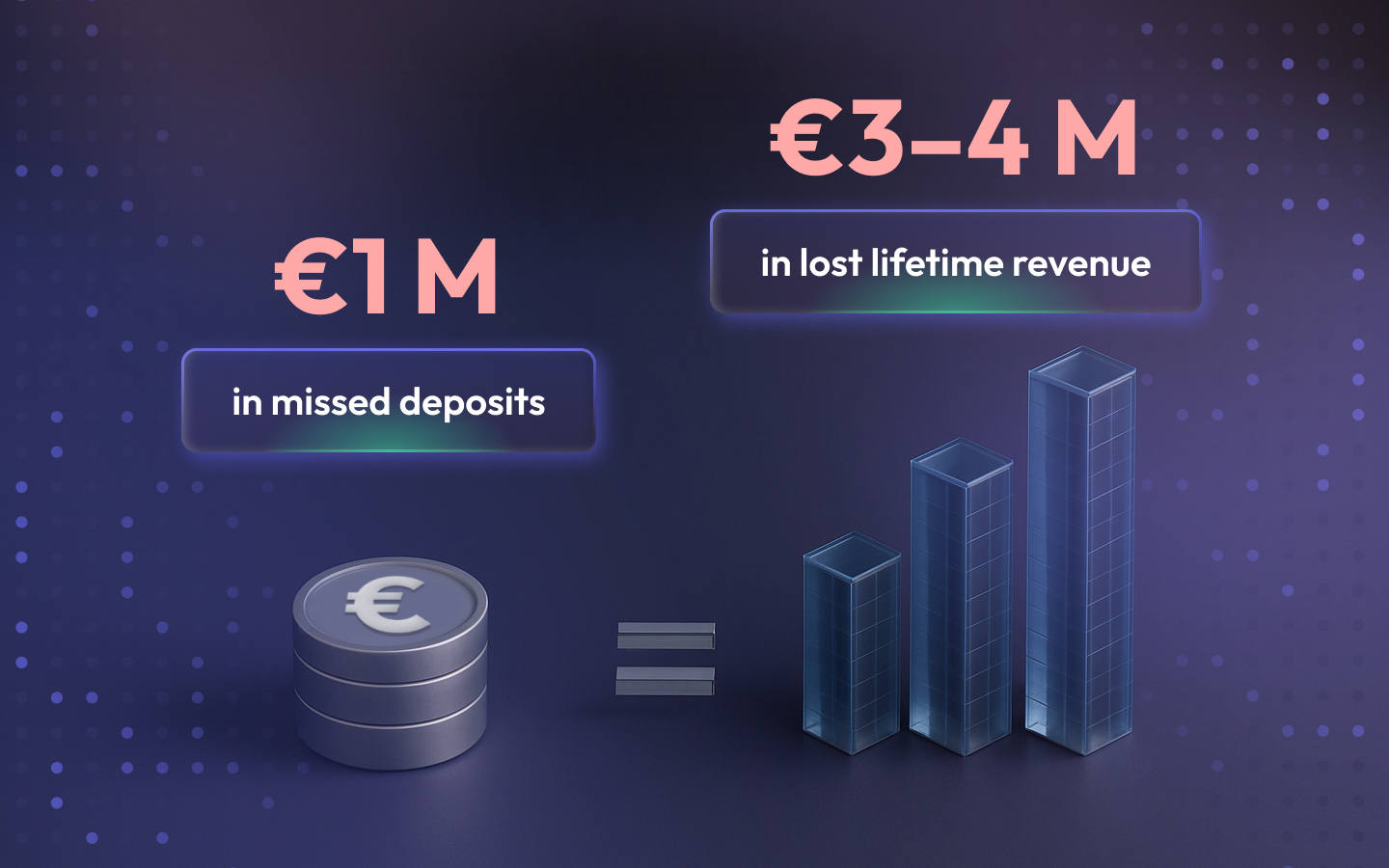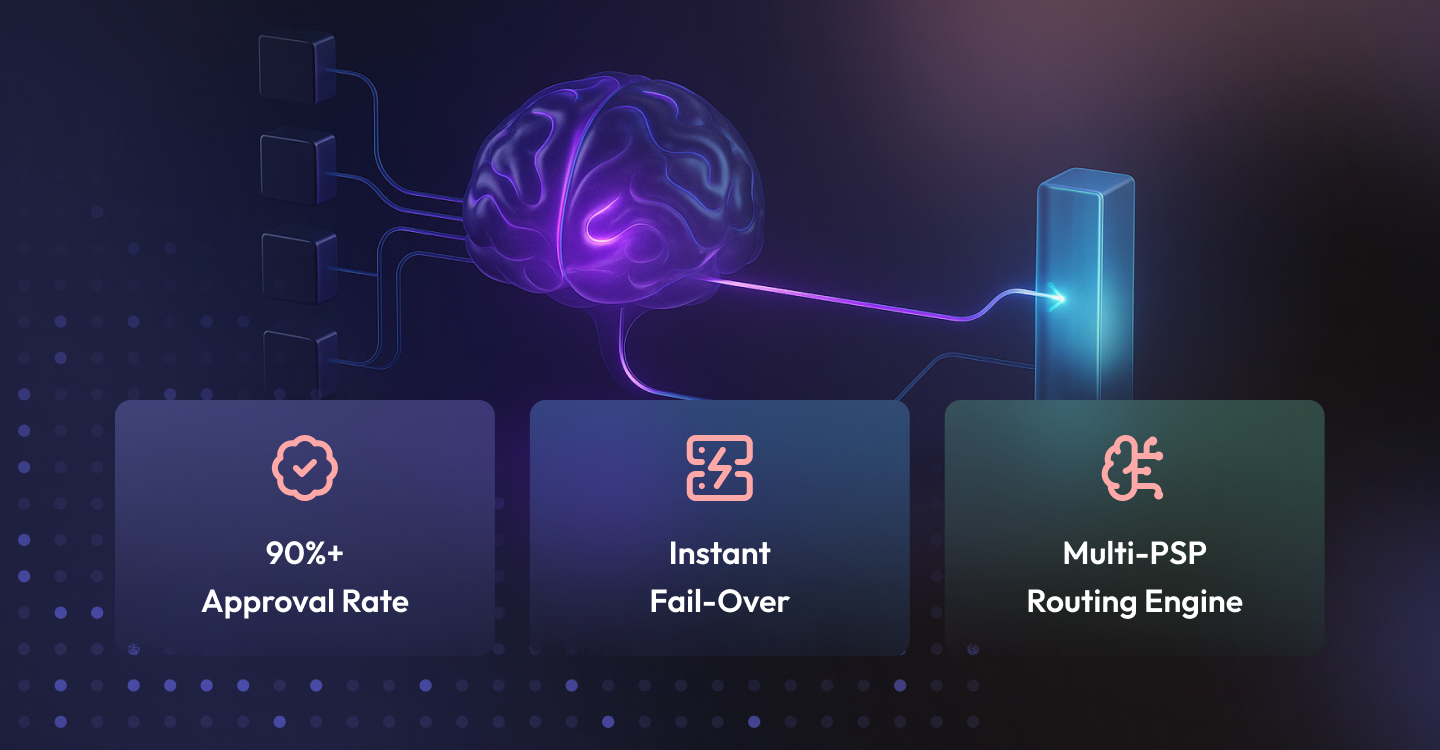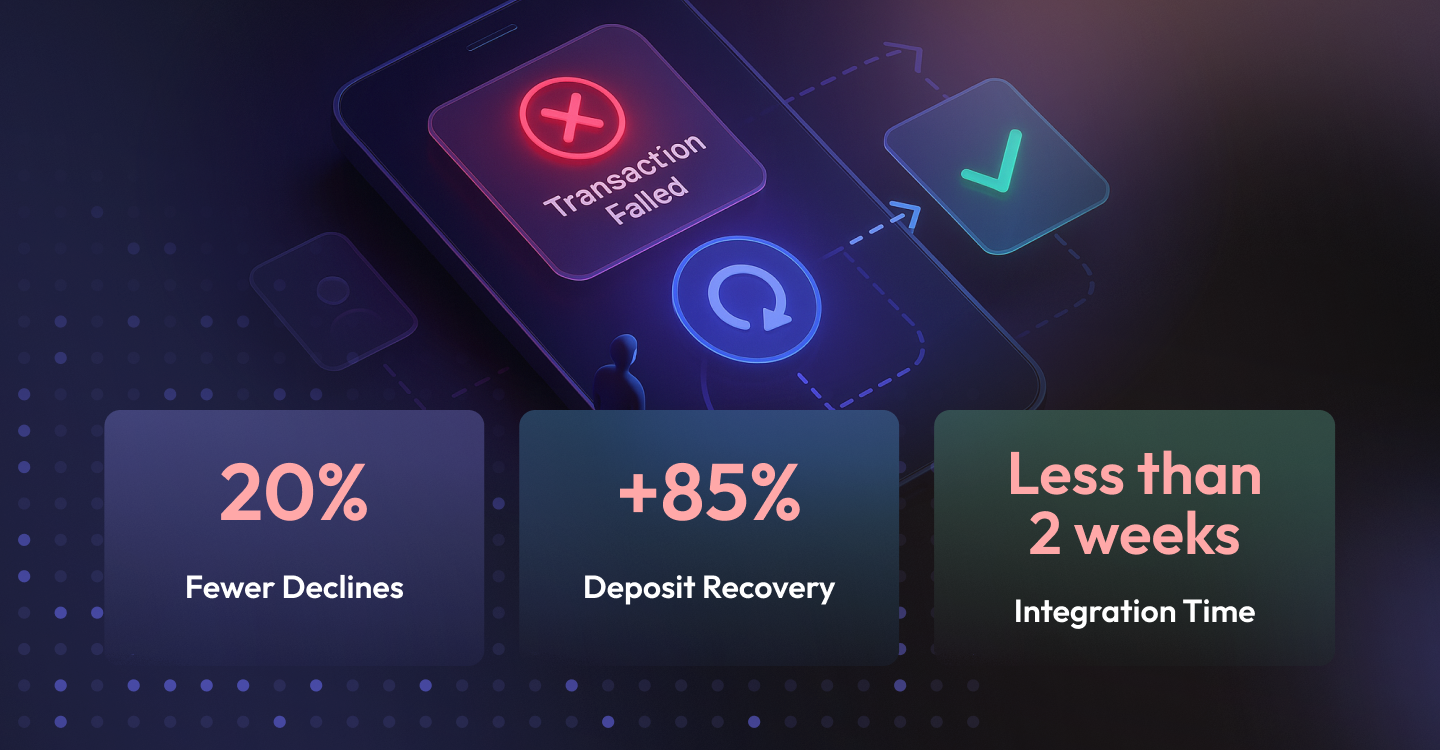Failed Transactions in iGaming: The Hidden Cost of Payment Failures (and How to Fix Them)

Introduction
Payment failures are one of iGaming’s most expensive blind spots.
Every failed transaction isn’t just a lost deposit—it’s a lost player, bonus, and moment of trust.
In a market where approval rates can swing from 75 % to 95 % depending on routing and orchestration, the difference is measured in millions. Failed transactions silently drain operator revenue, inflate churn, and damage reputation—all before a single bet is placed.
This article breaks down the true cost of payment failures in iGaming, why they happen more often than most operators realize, and how leading brands are fixing them through smart payment orchestration, real-time reconciliation, and player-centric recovery flows.
What Counts as a “Failed Transaction” in iGaming?
Definition & Types
In iGaming, not every decline is the same. Failed transactions include a range of payment disruptions that stop a deposit, withdrawal, or payout before completion:
- Hard declines: Permanent rejections (e.g., insufficient funds, invalid card).
- Soft declines: Temporary issues (e.g., network errors, 3-D Secure timeout).
- Routing errors: Payments lost due to incorrect or inefficient PSP or acquirer routing.
Each failure type carries a cost—not just in processing fees, but in lost player intent and operator trust.
Why iGaming Is Uniquely Vulnerable
The iGaming industry operates across multiple regions, risk profiles, and currencies.
This creates a perfect storm of friction:
- Cross-border processing with FX exposure
- High-risk merchant categorization by issuers
- Local payment method fragmentation (e.g., wallets, instant banking, prepaid cards)
The result? Declined payments up to 3× higher than standard e-commerce averages.
How Big Is the Cost of Failed Payments for iGaming Operators?
Payment failures don’t just cut revenue—they multiply operational and reputational damage.
Direct Costs
- Lost deposits and bonus triggers: Players never fund accounts, but welcome bonuses and acquisition costs are already spent.
- Processing and reconciliation overhead: Every failed attempt generates support tickets, PSP fees, and manual reconciliation work.
- Cash flow blockage: Funds can remain “in limbo” across PSPs and acquirers for days.
Hidden/Indirect Costs
- Churn and player frustration: 40 % of players who experience a failed deposit never try again.
- Lower lifetime value (LTV): Fewer deposits = shorter relationships.
- Reputational risk: Even one “card declined” message can push a player to a competing brand.
Key Metrics Operators Should Track
- Approval Rate – total successful deposits ÷ total attempts
- Decline Rate – proportion of failed attempts
Churn Rate – % of players inactive after payment failure

What Are the Main Causes of Failed Transactions in iGaming?
Payment Method Mismatch & Localisation Gaps
Players expect their favorite local payment methods. When an operator fails to offer them—or routes transactions through unsuitable PSPs—approval rates drop dramatically.
High-Risk Categorisation & Elevated Decline Rates
Banks and card schemes often treat iGaming merchants as high-risk. This creates issuer-side bias, where legitimate transactions are declined to reduce perceived exposure.
Ineffective Routing / Orchestration
Without intelligent orchestration, every transaction takes a single static path.
If that PSP or acquirer is down or misconfigured, revenue disappears instantly.
Smart routing with fail-over logic can recover up to 20 % of these lost deposits.
Compliance, FX / Cross-Border Friction & Payout Delays
Complex licensing, local KYC rules, and currency conversion further increase failure points. A lack of payment orchestration visibility means operators don’t always see where the drop-offs happen.
Proven Strategies to Reduce Failed Transactions and Reclaim Revenue
Fixing payment failures isn’t luck—it’s design.
Here’s how leading operators use MoreFin’s four-step orchestration framework to turn losses into wins.
1. Streamline Payment Orchestration: Smart Routing + Fail-Over Logic
Centralize all PSPs and acquirers into a single orchestration brain.
MoreFin dynamically routes each transaction through the best-performing path based on BIN, region, and currency—recovering revenue lost to static PSP connections.

2. Expand Local Payment Methods & Increase Conversion
Offer frictionless deposits with the right payment mix per market.
From SEPA and PIX to Mifinity and Skrill, localization equals loyalty.
MoreFin integrates 100+ payment methods through a unified API—so operators don’t need to manage multiple providers manually.
3. Monitor and Optimise Approval & Decline Rates in Real Time
With MoreFin, operators track PSP performance live.
If a provider’s approval rate drops below threshold, routing adjusts instantly—before revenue is lost.
Real-time orchestration = real-time protection.
4. Use Reconciliation Intelligence to Spot Leakage
Most operators reconcile weekly or even monthly.
MoreFin’s RecoPower module does it daily, automatically matching PSP data, invoices, and acquirer settlements to reveal missing or duplicate transactions.
That’s 25–30 % of trapped capital unlocked.
5. Build Player-Centric Flows: Communication, Retry Logic, UX Improvements
Player-Centric Recovery Flows
When players see “Transaction Failed,” it shouldn’t be the end.
Transparent error messages, one-click retry options, and localized fallback PSPs can recover 20–30 % of failed deposits instantly.

The ROI of Fixing Payment Failures
Optimizing payments doesn’t just cut losses—it compounds revenue.
- Raising approvals from 75 % → 90 % = +20 % deposit uplift.
- Daily reconciliation = 25–30 % more liquidity released.
- Lower churn = 3–5× higher lifetime profit per player.
📊 Example ROI Snapshot:
Operator X, processing €50 M annually, improved approval rates by 15 %.
Result: €1.2 M recovered per year, plus measurable boost in retention.

Future Trends & Why This Matters in 2025 and Beyond
Emerging Payment Methods
Crypto, instant banking, and digital wallets will dominate next-gen payments.
Each brings new failure dynamics—and new opportunities for orchestration to optimize approvals in real time.
Regulatory and Market Shifts
New EU and LatAm frameworks demand local payment method availability and stricter KYC. Operators with orchestration agility will adapt faster than competitors locked into legacy PSP setups.
The Competitive Edge
In 2025, player acquisition is expensive—and retention depends on the cashier.
The brands that own their payment logic will own their growth.
Conclusion & Next Steps
Key Takeaways
- Failed transactions cost operators millions annually.
- Smart orchestration and reconciliation reclaim that lost value.
- Player-centric flows convert failed payments into long-term loyalty.
Action Plan for This Quarter
- Audit your PSP performance and approval rates.
- Identify top decline reasons and localisation gaps.
- Implement orchestration with real-time monitoring and daily reconciliation.
Ready to turn payment failures into performance?
👉 Talk to our team and discover how MoreFin helps iGaming operators boost approval rates, unlock trapped capital, and simplify multi-PSP operations — without disrupting existing workflows.
FAQ
Q1: What is a failed transaction in iGaming?
A failed transaction is any deposit, withdrawal, or payout that doesn’t complete successfully—often due to issuer declines, PSP downtime, routing errors, or compliance holds.
Q2: Why do iGaming payments fail more often than standard e-commerce?
Because gaming merchants face higher risk classification, operate across multiple regions, and depend on localized methods that vary by market—each adding friction points.
Q3: How can operators reduce failed payments and recover lost revenue?
By implementing a payment orchestration platform like MoreFin that enables smart routing, fail-over logic, local method expansion, real-time performance monitoring, and automated reconciliation.
Related articles
Let’s Build the Right
Flow for You
Ready to elevate your digital payments? Our team is here to tailor a custom, high-performance infrastructure that scales with your ambitions. Let’s build your next competitive advantage - together.





